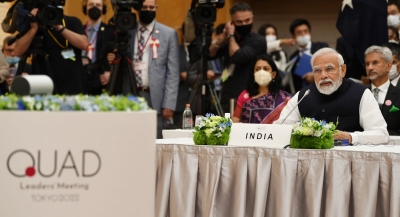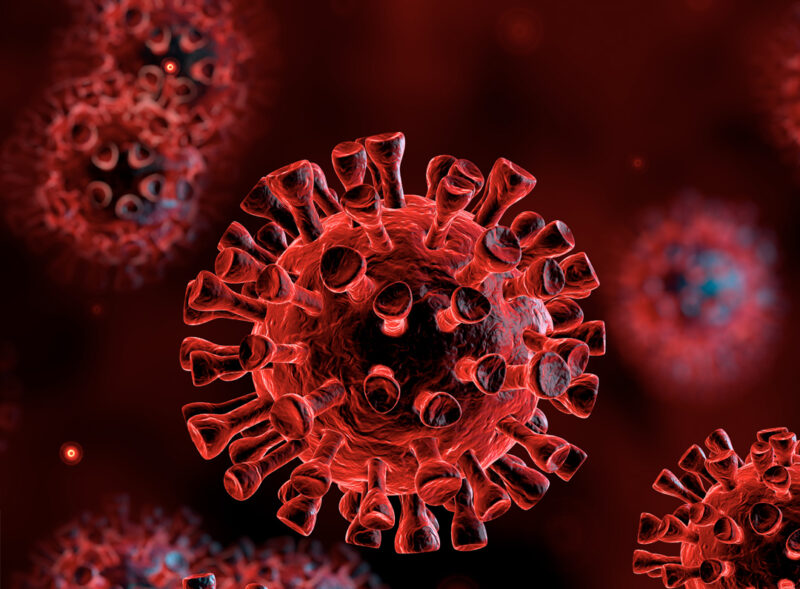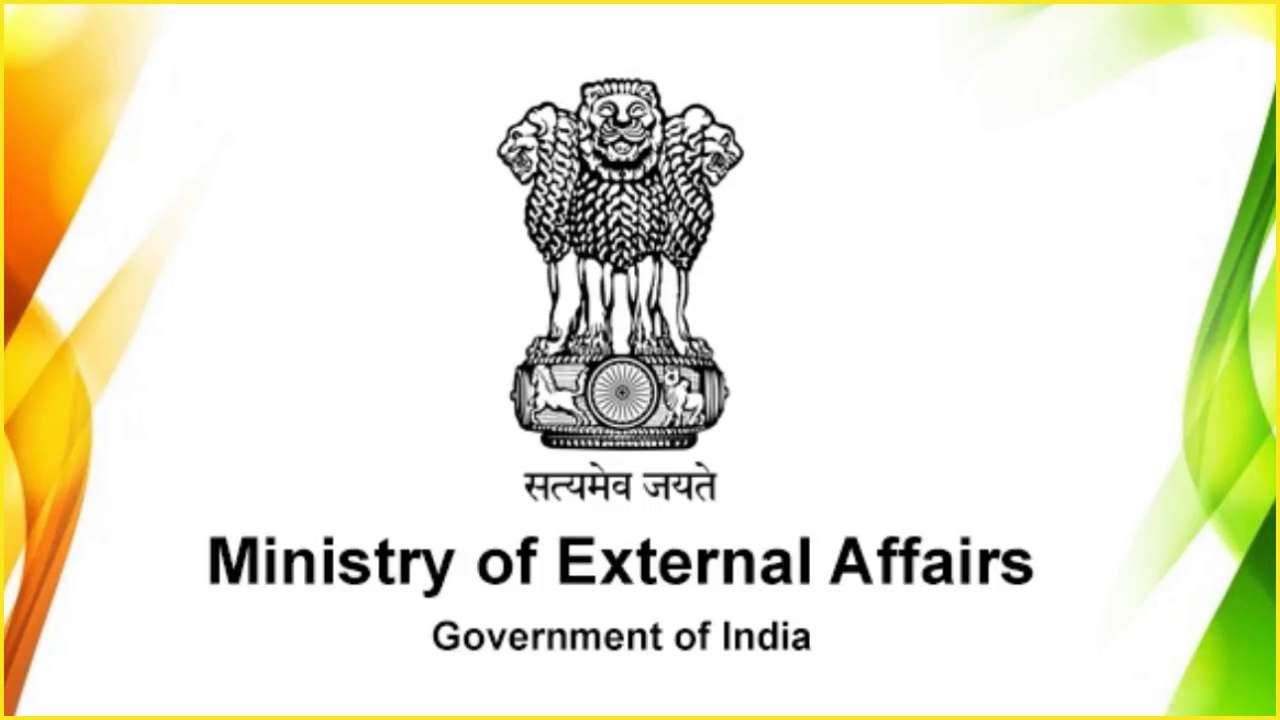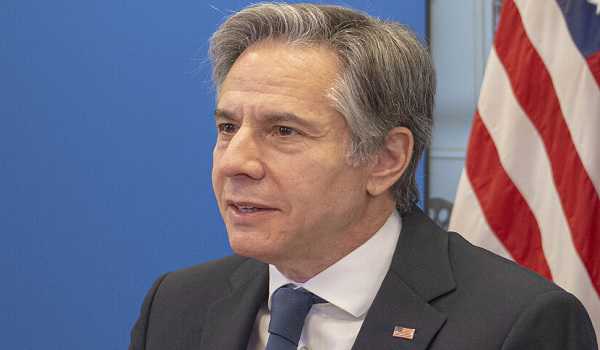India Plays Crucial Role In Quad, Cyber Security Concerns Take Centre Stage

New Delhi, June 2: India once again asserted its leadership role in the recently concluded Quad Summit in Japan.
The second in-person Quad Summit attended by Prime Minister Anthony Albanese of Australia, Prime Minister Narendra Modi of India, Prime Minister Fumio Kishida of Japan, and US President Joe Biden in Tokyo on May 24 was significant to showcase steadfast commitment to a free and open Indo-Pacific that is inclusive and resilient.
The four leaders in a significant move launched new maritime domain awareness initiative, the Indo-Pacific Partnership for Maritime Domain Awareness (IPMDA), designed to work with regional partners to respond to humanitarian and natural disasters, and combat illegal fishing.
Quad partners bring decades of skills and experience together to catalyse infrastructure delivery to the region and are committed to working closely with partners and the region to drive public and private investment to bridge gaps. To achieve this, the Quad will seek to extend more than USD 50 billion of infrastructure assistance and investment in the Indo-Pacific, over the next five years.
Reviewing Quad’s ongoing efforts to combat the COVID-19 pandemic, the leaders welcomed the enhanced manufacturing capacity of Biological-E facility in India and called for the expeditious grant of EUL approval by the WHO so that delivery of vaccines can commence. The leaders welcomed the gift of 525,000 doses of Made in India vaccines by India to Thailand and Cambodia in April 2022 under the Quad Vaccine Partnership.
They will continue to pursue a holistic approach to pandemic management by addressing last mile delivery and distribution challenges, augmenting regional health security through cooperation in genomic surveillance and clinical trials, and bolstering global health security architecture, the Quad joint statement said.
A Quad Climate Change Action and Mitigation Package (Q-CHAMP) was announced to strengthen efforts towards green shipping, clean energy, including green hydrogen and climate and disaster resilient infrastructure. Prime Minister Modi reiterated the importance of assisting countries in the region with their COP26 commitments through mobilisation of climate finance and technology transfer.
In an increasingly digital world with sophisticated cyber threats the Quad members recognised an urgent need to take a collective approach to enhancing cybersecurity. To deliver on the Quad Leaders’ vision for a free and open Indo-Pacific, the forum committed to improving the defence of its member nations’ critical infrastructure by sharing threat information, identifying and evaluating potential risks in supply chains for digitally enabled products and services, and aligning baseline software security standards for government procurement, leveraging our collective purchasing power to improve the broader software development ecosystem so that all users can benefit.
The Quad partners will coordinate capacity building programmes in the Indo-Pacific region under the Quad Cybersecurity Partnership, and will initiate the first-ever Quad Cybersecurity Day to help individual internet users across the nations, the Indo-Pacific region and beyond to better protect themselves from cyber threats.
As part of ongoing work related to critical and emerging technologies, Quad’s Common Statement of Principles on Critical Technology Supply Chains was launched. The four countries will coordinate capacity building programmes for the Indo-Pacific region to bolster critical cyber security infrastructure of the region.
The Prime Minister called for greater Quad collaboration to build trusted global supply chains and spoke of the national framework being adopted in India to create a semiconductor ecosystem in India.
A Quad Partnership on Humanitarian Assistance and Disaster Relief (HADR) for the Indo-Pacific was announced by the Leaders to enable more effective and timely responses to disasters in the region. The Leaders agreed to provide countries in the region resources on earth observation data through a Quad satellite data portal to help track climate events, disaster preparedness and sustainable use of marine resources. India will play a proactive role in this effort given its longstanding capabilities in using space-based data and technologies for inclusive development.
The members said they will build high-standard, inclusive, free, and fair trade commitments and develop new and creative approaches in trade and technology policy that advance a broad set of objectives that fuels economic activity and investment, promotes sustainable and inclusive economic growth, and benefits workers and consumers. The efforts include, but are not limited to, cooperation in the digital economy.
The Summit talked about commitment to improving transparency, diversity, security, and sustainability in its supply chains to make them more resilient and well-integrated.
“We seek to coordinate crisis response measures; expand cooperation to better prepare for and mitigate the effects of disruptions to better ensure business continuity; improve logistical efficiency and support; and ensure access to key raw and processed materials, semiconductors, critical minerals, and clean energy technology,” the statement on Indo-Pacific Economic Framework for Prosperity.
“In line with our Paris Agreement goals and efforts to support the livelihood of our peoples and workers, we plan to accelerate the development and deployment of clean energy technologies to decarbonize our economies and build resilience to climate impacts. This involves deepening cooperation on technologies, on mobilizing finance, including concessional finance, and on seeking ways to improve competitiveness and enhance connectivity by supporting the development of sustainable and durable infrastructure and by providing technical assistance.”






